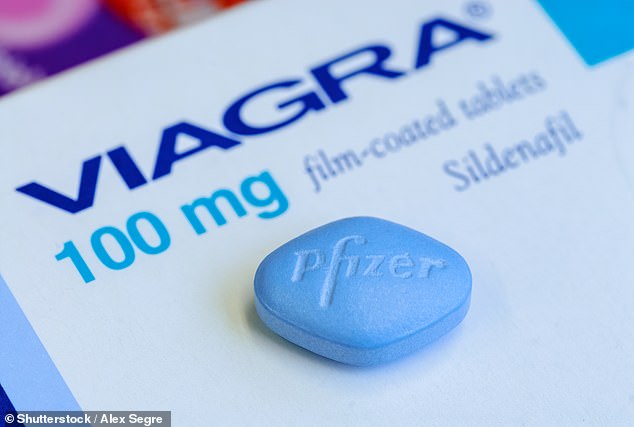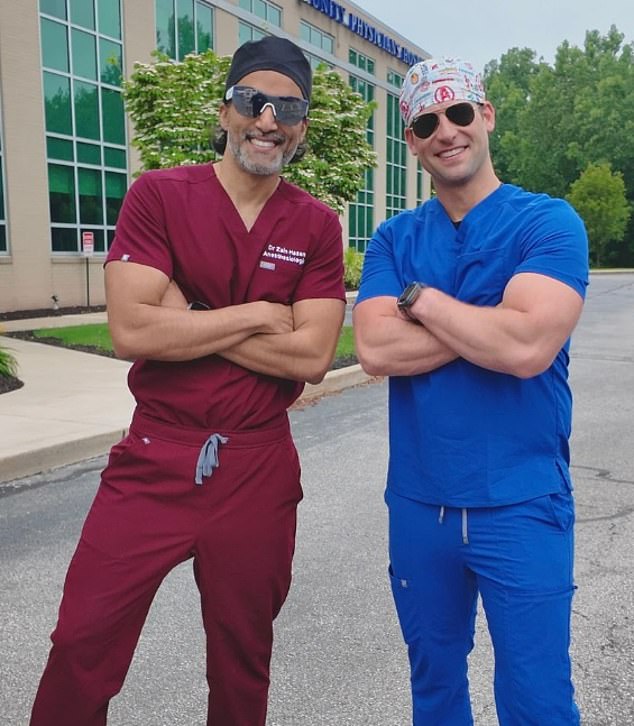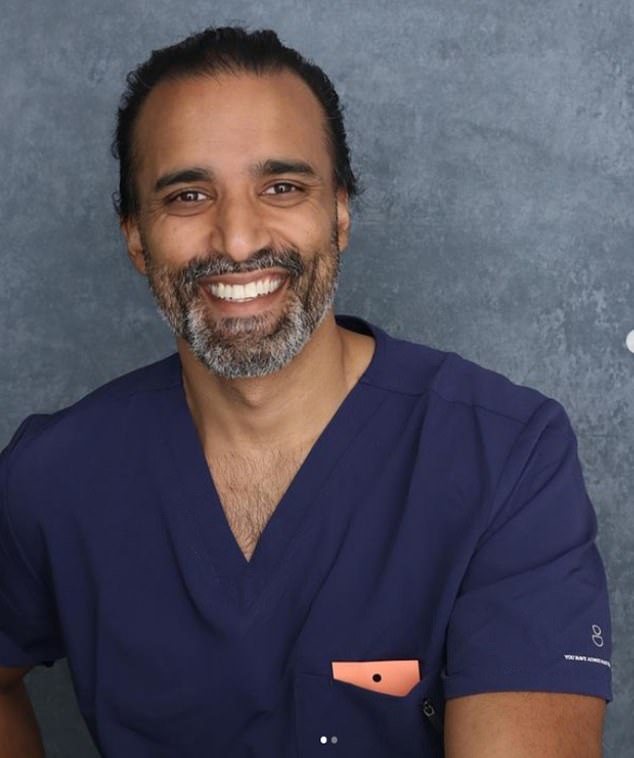A leading doctor has revealed the common medications you should never take with food.
Dr. Zain Hasan, an anesthesiologist in Los Angeles, said they highlighted five medications that become less effective if taken just before or after a meal.
Even a cup of coffee or glass of orange juice in the morning could prevent the body from properly absorbing medications, leaving conditions such as high blood pressure, heart failure, and thyroid problems untreated.
Dr. Hasan insisted that people always consult their doctor before suddenly changing the way they take medications, which can be equally dangerous.
The first medication on Dr. Hasan’s list was synthroid (levothyroxine), which is used to treat underactive thyroid, also known as hypothyroidism.
It works by replacing the thyroid hormone thyroxine (T4), which people with hypothyroidism do not produce enough.
Experts estimate that 100 million prescriptions for synthroid are written each year, and that one in 20 Americans takes it.
Consumption of foods with calcium and iron, such as dairy products and red meat, decreases the intestine’s ability to absorb the medication.
Dr. Zain Hasan, an anesthesiologist in Los Angeles, shared medications that should not be taken with food.
Dr. Hasan highlighted typical breakfast drinks. He said: “If you take Synthroid with milk, coffee or juice, it may reduce the absorption and effectiveness of Synthroid.”
The ATA recommends taking synthroid on an empty stomach 30 to 60 minutes before eating to avoid this “erratic absorption.”
If left untreated, hypothyroidism can lead to nerve pain, high cholesterol, and infertility.
Dr. Hasan also warned against consuming bisphosphonates with food. Bisphosphonates are a group of medications that help increase bone strength and density.
These are most often prescribed for osteoporosis, a condition that occurs mainly in older people and makes bones brittle and prone to breaking, as well as for some cancers that have spread to the bones.
Dr. Hasan said, “It is not recommended to take bisphosphonates with food because it may decrease the absorption of bisphosphonates.”
Experts recommend taking these medications on an empty stomach with a full glass of water, as well as waiting 30 minutes later to eat or drink anything else.
The Office of Disease Prevention and Health Promotion estimates that 10 million Americans over age 50 are diagnosed with osteoporosis.
If left untreated, bones can become so brittle that they can break due to minor injuries.
America’s favorite erectile dysfunction drug, Viagra, also made the list.
Also known as sildenafil, Viagra is taken by more than 1 million American men, including a growing number of men in their 20s and 30s.
The medication helps relax the muscles and arteries of the penis, increasing blood flow, which helps maintain an erection.
Erectile dysfunction usually affects men over 50, although younger men have become increasingly likely to suffer from this condition, which experts attribute to stress, pornography and anxiety. All of these have been shown to reduce testosterone levels and make the brain less responsive to sexual stimuli.
‘If you take sildenafil or Viagra with food during dinner, it doesn’t work as well. Yeah, that’s why it doesn’t work so well.’
It is recommended to take Viagra one hour before having sex on an empty stomach or two hours after a meal to ensure it is effective.
Fatty foods in particular can block the absorption of Viagra’s active ingredient, sildenafil citrate, and delay erections by about an hour.

Taking Viagra (pictured) with a high-fat meal could cause an hour’s delay in erections, Dr Hasan warned
Dr. Hasan also warned against taking captopril, also called Capoten.
Captopril is an angiotensin-converting enzyme (ACE) inhibitor, which treats high blood pressure by stopping the production of angiotensin II, a substance that narrows blood vessels.
Of the 50 million Americans who take medications to treat high blood pressure, eight in 10 take ACE inhibitors such as captopril.
Dr Hasan said: ‘Captopril is not supposed to be taken with food. You have to wait two hours after eating or take it before eating in the morning.’
As with the other medications on the list, eating with captopril may make it less effective.
If high blood pressure cannot be controlled, blood vessels become damaged over time and have difficulty transporting blood to the heart.
This forces the heart to work harder, straining it and increasing the risk of heart attacks.
Lastly, Dr. Hasan advised against taking proton pump inhibitors (PPIs) with food.
These medications help decrease stomach acid production, leading them to be used for acid reflux, heartburn, and stomach ulcers.

In a TikTok video with 25,000 views, Dr. Hasan (pictured left) shared that taking certain medications with food can delay absorption, making them less effective.

Dr. Hasan (pictured with his wife) also warned to always consult your doctor before stopping medications or changing the frequency.
Available over the counter and with a prescription, more than 15 million Americans take PPIs.
PPIs block the pumps that produce stomach acid, which are activated during food, so taking the medication with a meal negates its benefits.
Dr. Hasan said, “You’re supposed to take it 30 to 60 minutes before meals.”
Uncontrolled acid reflux could cause inflammation, scarring and narrowing of the esophagus, which could cause pain and difficulty swallowing.


